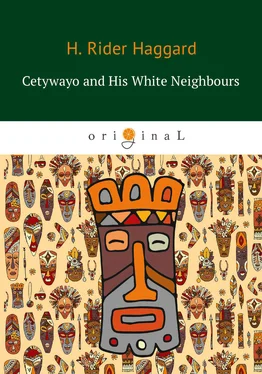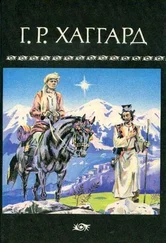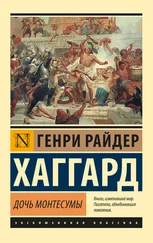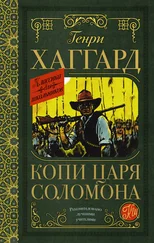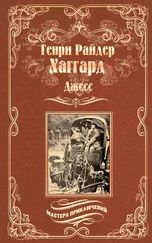Генри Райдер Хаггард - Cetywayo and His White Neighbours
Здесь есть возможность читать онлайн «Генри Райдер Хаггард - Cetywayo and His White Neighbours» — ознакомительный отрывок электронной книги совершенно бесплатно, а после прочтения отрывка купить полную версию. В некоторых случаях можно слушать аудио, скачать через торрент в формате fb2 и присутствует краткое содержание. Город: Москва, Год выпуска: 2018, ISBN: 2018, Жанр: literature_19, Публицистика, на английском языке. Описание произведения, (предисловие) а так же отзывы посетителей доступны на портале библиотеки ЛибКат.
- Название:Cetywayo and His White Neighbours
- Автор:
- Жанр:
- Год:2018
- Город:Москва
- ISBN:978-5-521-06635-3
- Рейтинг книги:3 / 5. Голосов: 1
-
Избранное:Добавить в избранное
- Отзывы:
-
Ваша оценка:
- 60
- 1
- 2
- 3
- 4
- 5
Cetywayo and His White Neighbours: краткое содержание, описание и аннотация
Предлагаем к чтению аннотацию, описание, краткое содержание или предисловие (зависит от того, что написал сам автор книги «Cetywayo and His White Neighbours»). Если вы не нашли необходимую информацию о книге — напишите в комментариях, мы постараемся отыскать её.
Sir Henry Rider Haggard was an English writer of adventure novels set in exotic locations, predominantly Africa, and a pioneer of the Lost World literary genre.
Cetywayo and His White Neighbours — читать онлайн ознакомительный отрывок
Ниже представлен текст книги, разбитый по страницам. Система сохранения места последней прочитанной страницы, позволяет с удобством читать онлайн бесплатно книгу «Cetywayo and His White Neighbours», без необходимости каждый раз заново искать на чём Вы остановились. Поставьте закладку, и сможете в любой момент перейти на страницу, на которой закончили чтение.
Интервал:
Закладка:
Thwarted in his designs on the Swazis, Cetywayo next turned his attention to the Transvaal Boers. The Zulus and the Boers had never been good friends since the days of the massacre of Retief, and of late years their mutual animosity had been greatly increased owing to their quarrels about the boundary question previously alluded to. This animosity reached blood-heat when the Boer Government, acting with the arrogance it always displayed towards natives, began to lay its commands upon Cetywayo about his relations with the Amaswazi, the alleged trespassing on Boer territory, and other matters. The arrogance was all the more offensive because it was impotent. The Boers were not in a position to undertake the chastisement of the Zulus. But the king and council of Zululand now determined to try conclusions with the Transvaal on the first convenient opportunity, and this time without consulting the Government of Natal. The opportunity soon occurred. Secocoeni, the powerful chief of the Bapedi, one of the tribes whose territories border on the Transvaal, came to a difference with the Boers over another border question. There is good ground for supposing that Cetywayo incited him to withstand the Boer demands; it is certain that during the course of the war that followed he assisted him with advice, and more substantially still, with Zulu volunteers.
To be brief, the Secocoeni war resulted in the discomfiture of the Transvaal forces. Another result of this struggle was to throw the whole state into the most utter confusion, of which the Dutch burghers, always glad of an opportunity to defy the law, took advantage to refuse to pay taxes. National bankruptcy ensued, and confusion grew worse confounded.
Cetywayo took note of all this, and saw that now was his opportunity to attack. The Boers had suffered both in morale and prestige from their defeat by Secocoeni, who was still in arms against them; whilst the natives were proportionately elated by their success over the dreaded white men. There was, he knew well, but little chance of a rapid concentration to resist a sudden raid, especially when made by such a powerful army, or rather chain of armies, as he could set in motion. Everything favoured the undertaking; indeed, humanly speaking, it is difficult to see what could have saved the greater part of the population of the Transvaal from sudden extinction, if a kind Providence had not just then put it into the head of Lord Carnarvon to send out Sir T. Shepstone as Special Commissioner to their country. When Cetywayo heard that his father Sompseu (Sir T. Shepstone) was going up to the Transvaal, he held his hand, sent out spies, and awaited the course of events. The following incident will show with what interest he was watching what took place. At the Vaal River a party of Boers met the Special Commissioner and fired salutes to welcome him. It was immediately reported to Cetywayo by his spies that the Boers had fired over Sir T. Shepstone’s waggon. Shortly afterwards a message arrived at Pretoria from Cetywayo to inquire into the truth of the story, coolly announcing his intention of sweeping the Transvaal if it were true that “his father” had been fired at. In a conversation with Mr. Fynney after the Annexation Cetywayo alludes to his intentions in these words: —
“I heard that the Boers were not treating him (Sompseu) properly, and that they intended to put him in a corner. If they had done so I should not have waited for anything more. Had but one shot been fired , I should have said, ‘What more do I wait for? they have touched my father.’ I should have poured my men over the land, and I can tell you, son of Mr. Fynney, the land would have burned with fire.” This will show how eagerly Cetywayo was searching for an excuse to commence his attack on the Transvaal. When the hope of finding a pretext in the supposed firing at Sir T. Shepstone or any incident of a similar nature faded away, he appears to have determined to carry out his plans without any immediate pretext, and to make a casus belli of his previous differences with the Government of the Republic. Accordingly he massed his impis (army corps) at different points along the Transvaal border, where they awaited the signal to advance and sweep the country. Information of Cetywayo’s doings and of his secret plans reached Pretoria shortly before the Annexation, and confirmed the mind of the Special Commissioner as to the absolute necessity of that measure to save the citizens of the Republic from coming to a violent end, and South Africa from being plunged into a native war of unexampled magnitude. The day before the Annexation took place, when it was quite certain that it would take place, a message was sent to Cetywayo by Sir T. Shepstone telling him of what was about to happen, and telling him too in the sternest and most straightforward language, that the Transvaal had become the Queen’s land like Natal, and that he must no more think of attacking it than he would of attacking Natal. Cetywayo on receiving the message at once disbanded his armies and sent them to their kraals. “Kabuna,” he said to the messenger, “my impis were gathered; now at my father’s (Sir T. Shepstone’s) bidding I send them back to their homes.”
This fact, namely, that at the bidding of his old mentor Sir T. Shepstone, Cetywayo abandoned his long-cherished plans, and his undoubted opportunity of paying off old scores with the Boers in a most effectual manner, and gave up a policy that had so many charms for him, must be held by every unprejudiced man to speak volumes in his favour. It must be remembered that it was not merely to oblige his “father Sompseu” that he did this, but to meet the wishes of the English Government, and the act shows how anxious he was to retain the friendship and fall in with the views of that Government. Evidently Cetywayo had no animosity against us in April 1877.
In his interview with Mr. Fynney, Cetywayo speaks out quite frankly as to what his intentions had been; he says, “I know all about the soldiers being on their way up, but I would have asked Sompseu to allow the soldiers to stand on one side for just a little while, only a little, and see what my men could do. It would have been unnecessary for the Queen’s people to trouble. My men were all ready, and how big must that stone have been, with my father Sompseu digging at one side and myself at the other, that would not have toppled over? Even though the size of that mountain (pointing to a mountain range), we could put it on its back. Again I say I am glad to know the Transvaal is English ground; perhaps now there may be rest.”
This and other passages show beyond all doubt from what an awful catastrophe the Transvaal was saved by the Annexation. That Cetywayo personally detested the Boers is made clear by his words to Mr. Fynney. “‘The Boers,’ he says, ‘are a nation of liars; they are a bad people, bad altogether. I do not want them near my people; they lie and claim what is not theirs, and ill-use my people. Where is Thomas?’ (President Burgers). I informed him that Mr. Burgers had left the Transvaal. ‘Then let them pack up and follow Thomas,’ said he. ‘Let them go. The Queen does not want such people as those about her land. What can the Queen make of them or do with them? Their evil ways puzzled both Thomas and Rudolph, Landdrost of Utrecht; they will not be quiet.’”
It is very clear that if Cetywayo had been left to work his will, a great many of the Boers would have found it necessary to “pack up and follow Thomas,” whilst many more would have never needed to pack again.
I am aware that attempts have been made to put another explanation on Cetywayo’s warlike preparations against the Boers. It has been said that the Zulu army was called up by Sir T. Shepstone to coerce the Transvaal. It is satisfactory to be able, from intimate personal knowledge, to give unqualified denial to that statement, which is a pure invention, as indeed is easily proved by clear evidence, which I have entered into in another part of this book. Cetywayo played for his own hand all along, and received neither commands nor hints from the Special Commissioner to get his army together. Indeed, when Sir T. Shepstone discovered what was going on, he suffered great anxiety lest some catastrophe should occur before he was in a position to prevent it. Nothing short of the Annexation could have saved the Transvaal at that moment, and the conduct of the Boers after the danger had been taken on to the shoulders of the Imperial Government is a startling instance of national ingratitude.
Читать дальшеИнтервал:
Закладка:
Похожие книги на «Cetywayo and His White Neighbours»
Представляем Вашему вниманию похожие книги на «Cetywayo and His White Neighbours» списком для выбора. Мы отобрали схожую по названию и смыслу литературу в надежде предоставить читателям больше вариантов отыскать новые, интересные, ещё непрочитанные произведения.
Обсуждение, отзывы о книге «Cetywayo and His White Neighbours» и просто собственные мнения читателей. Оставьте ваши комментарии, напишите, что Вы думаете о произведении, его смысле или главных героях. Укажите что конкретно понравилось, а что нет, и почему Вы так считаете.
